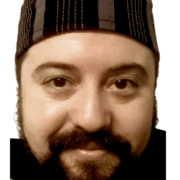
Y. Gávriel Ansara
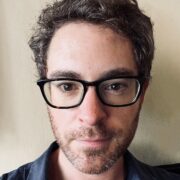
Brian Earp
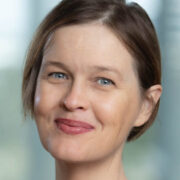
Phoebe Hart
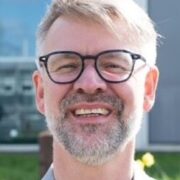
Peter Hegarty

Cynthia Kraus
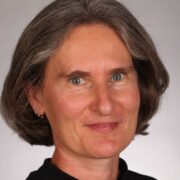
Katrina Roen
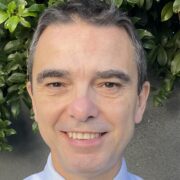
Stephen Stathis
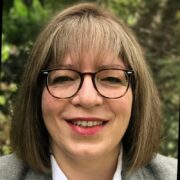
Agli Zavros-Orr
Y. Gávriel Ansara
Dr Y. Gávriel (Gávi) Ansara is a Member of the Interconnect Project Advisory Board.
Gávi (He/him) is a polycultural man living and working on unceded Wurundjeri Country in the Kulin Nations. He works as a Registered Clinical Psychotherapist and Accredited Clinical Supervisor who completed advanced training in Supervision in the Family Violence sector. He specialises in anti-oppressive, anti-racist, trans-affirming intersectionally feminist, trauma-and-violence-informed approaches to working solo and with two or more people, including relationship constellations, kinship groups, and communities. He is recognised by Pink Therapy as an Advanced Accredited Gender, Sexuality, Sex Characteristics, and Relationship Diversities Therapist (AAGSRDT). He is also founding director and a learning facilitator of courses, workshops, and groups with the Centre for Liberating Practices, a global virtual hub for people around the world seeking non-violent, non-coercive, and creative ways to challenge oppressions and cultivate thriving communities.
Gávi has over a decade of commitment within intersex communities. He testified at the Australian Senate Committee hearing on the involuntary or coerced sterilisation of intersex people, led intersex rights initiatives on multiple continents, served as a contributing authors for the Yellow Tick mental health training, conducted intersex-affirming health practitioner training and intersex community workshops, and published several peer-reviewed publications on intersex-affirming practice– including an open access book chapter with practitioner guidelines for intersex-centred sex therapy and relationship counselling with adults who have innate variations of sex characteristics. His relationship constellation and kinship work centre racialised and colonially equity-denied communities and cultural traditions, as well as polyamorous, multi-partner, queer, queerplatonic, neurodivergent, fursona-based, Otherkin/Therian, and D/s kinships. He has specialisations in B/I/POC-centred ecotherapy, polycultural creative arts approaches, grief and loss, solo/intergenerational/community lived experiences of traumatising violence, supporting forcibly displaced people seeking asylum, and anti-oppressive group facilitation.
Gávi is recognised globally for research, lecturing, health policy work, and involvement in international human rights and social justice efforts. He has received various scholarships and awards, including being the 2012 recipient of the American Psychological Association’s Division 44 Transgender Research Award for his original and significant research contributions to the field.
Gávi holds a PhD in Psychology from the University of Surrey. His detailed societal positioning reflection on his lived experiences of marginalisation, privilege, and affinity is available here.
Brian Earp
Associate Professor Brian Earp is a Member of the Interconnect Project Advisory Board.
He is an Associate Professor of Biomedical Ethics within the Yong Loo Lin School of Medicine at the National University of Singapore (NUS) and an Associate Professor of Philosophy and of Psychology at NUS by courtesy. Also a Research Associate of the Uehiro Oxford Institute of the University of Oxford, Brian directs the Oxford-NUS Centre for Neuroethics and Society and is Associate Director of the Yale-Hastings Program in Ethics and Health Policy at Yale University and The Hastings Center. In 2022, Brian was elected to the UK Young Academy under the auspices of the British Academy and the Royal Society.
Brian is especially known for working on philosophical and ethical questions relating to the human rights to bodily integrity and to bodily autonomy, and how these intersect with questions of sex, gender, identity, and children’s rights. Brian leads an informal network of international scholars known as the Brussels Collaboration on Bodily Integrity that has published on the rights of persons with intersex variations to be protected from medically unnecessary, non-voluntary alterations of their bodies.
Brian’s work is cross-disciplinary, following training in philosophy, cognitive science, experimental psychology, history and sociology of science and medicine, and ethics. A co-recipient of the Daniel M. Wegner Theoretical Innovation Prize from the Society for Personality and Social Psychology, Brian was also one of four named finalists for the 2020 John Maddox Prize for “standing up for science” (awarded by Nature). Brian is also recipient of both the Robert G. Crowder Prize in Psychology and the Ledyard Cogswell Award for Citizenship from Yale University, where, as an undergraduate, Brian was elected President of the Yale Philosophy Society and served as Editor-in-Chief of the Yale Philosophy Review.
Brian then conducted graduate research in psychological methods as a Henry Fellow of New College at the University of Oxford, followed by a degree in the history, philosophy, and sociology of science, technology, and medicine as a Cambridge Trust Scholar and Rausing Award recipient at Trinity College at the University of Cambridge. After spending a year in residence as the inaugural Presidential Scholar in Bioethics at The Hastings Center in Garrison, New York, Brian was appointed Benjamin Franklin Resident Graduate Fellow while completing a dual Ph.D. in philosophy and psychology at Yale University. Brian’s essays have been translated into Polish, German, Italian, Spanish, French, Portuguese, Japanese, and Hebrew.
Phoebe Hart
Associate Professor Phoebe Hart is a Member of the Interconnect Project Advisory Board.
Phoebe is an accomplished Australian filmmaker, academic, and intersex rights activist. She serves as an Associate Professor in Film and Screen at the Queensland University of Technology (QUT). In addition to her academic role, Phoebe is the principal of Hartflicker, a Brisbane-based video and film production company.
Phoebe’s notable work includes the autobiographical documentary “Orchids: My Intersex Adventure,” which explores her personal journey and has garnered critical acclaim. Her interdisciplinary research focuses on creative practice, diversity on and off screen, and screen education, aiming to challenge and transform representations of marginalised groups.
Throughout her career, Phoebe has received several accolades, including the ATOM Award for Best Documentary and the Australian Directors Guild Award for Best Direction in a Documentary. She holds a Doctor of Philosophy and a Bachelor of Business from QUT, as well as a Graduate Certificate in Academic Practice.
Phoebe’s contributions to both the film industry and academia have established her as a leading figure in advocating for diversity and inclusion through storytelling and education.
Peter Hegarty
Professor Peter Hegarty is a Member of the Interconnect Project Advisory Board.
Peter brings more than 25 years’ of academic experience to the Interconnect Project Advisory Board. He became the first elected chair of the British Psychological Society’s Psychology of Sexualities Section in 2004 and received the Society’s 2018 award for Promoting Equality of Opportunity. He was Head of School (2012-2015) and Director of the Social Psychology Research Group at the University of Surrey (2016-2020), before moving to the Open University to co-direct its Open Psychology Research Centre (2020-2024).
Now Professor of Psychology at the Open University, he previously taught at the University of Michigan, Yale University, and the City University of New York, and was the 2017-18 Suzanne Tassier Chair of Gender and Human Rights at the Université Libre de Bruxelles, Belgium. One of the first of Peter’s 100+ peer reviewed research articles, co-authored with Cheryl Chase in 2000, examined the intersection of psychology and intersex activism. With the SENS research collective he has examined clinical reasoning about medical necessity within VSC healthcare. He directed the grant Intersex UK: A History for the Age of Consensus funded by The Wellcome Trust (2015-2020), including co-organizing the 2016 conference Intersex After Human Rights. He coordinates the professional network PSI-I: Psychosocial Intersex International, works with the UK charity Interconnected, and is a member of the American Psychological Association Task Force on DSD. Peter has also written two sole-authored and one co-authored book on the history of psychology.
Connect with Peter on LinkedIn and Google Scholar.
Cynthia Kraus
Dr Cynthia Kraus is a Member of the Interconnect Project Advisory Board.
Cynthia is a philosopher, lecturer and researcher at the Institute of Social Sciences at the University of Lausanne in Switzerland, and an Ewha Global Fellow at the Ewha Womans University in Seoul.
Her main areas of research are: gender studies; social studies of the body and sexuality; social studies of science and medicine. She works from an interdisciplinary perspective on the dynamics between laboratory research and clinical practice, professional and lay expertise, knowledge production and political action.
Cynthia holds a Doctorate of Letters from the University of Lausanne.
Katrina Roen
Professor Katrina Roen (she/they) is a Member of the Interconnect Project Advisory Board.
Katrina is a professor within Psychological and Social Sciences at the University of Waikato (Aotearoa New Zealand). Katrina takes a queer, feminist and critical psychology approach to intersex research. They have carried out research in the UK and Scandinavia (the SENS project), seeking to build psychosocial understandings into healthcare for people with variations in sex characteristics. Katrina is a founding member of Psychosocial Studies Intersex – International (PSI-I).
Since returning to Aotearoa New Zealand, Katrina has turned their attention to the construction of intersex in settler colonial contexts. Katrina’s newly-funded project involves running workshops with government and healthcare officials to investigate the lack of substantive response to UN recommendations regarding the human rights of intersex people in Aotearoa New Zealand. This project is intended to be transformative, mapping out a pathway to healthcare changes and identifying strategically positioned change agents.
Katrina’s other research has addressed topics such as queer youth self-harm, trans embodiment and digital affect.
Katrina also enjoys ocean swimming and yoga.
Stephen Stathis
Professor Stephen Stathis MBBS, FRANZCP, Cert. Child Adol. Psych, DTM&H, MSc is a Member of the Interconnect Project Advisory Board.
Stephen obtained a dual fellowship in paediatrics and psychiatry, with certificates in Child & Adolescent Psychiatry and Forensic Psychiatry. He is the Medical Director of Child and Youth Mental Health Services, Children’s Health Queensland and acts as the Clinical Advisor for child and youth mental health at the Mental Health Alcohol and Other Drugs Branch.
Stephen has extensive experience working among vulnerable and marginalised young people within the community. His clinical interests include ‘bridging the gap’ between paediatrics and psychiatry, gender dysphoria, and mental health policy and strategic planning. He has worked for 20 years with intersex children, adolescents and their families.
Agli Zavros-Orr
Dr Agli Zavros-Orr is a Member of the Interconnect Project Advisory Board.
Agli is a teacher educator, academic and advocate for diversity and inclusion in schooling contexts. They are currently an Education Lecturer in the Institute of Education, Arts and Community at Federation University, the Founder and Director of Diversitywise Educational Services, and serve on the Victorian Government Intersex Advisory Group (IEAG),
One area that has become a focus of their advocacy, activism and research is the promotion of education and awareness about variations in sex characteristics. An important aspect of this is promoting the acquisition of accurate and un-biased language to know about and talk about diverse bodies (their sex, gender and sexuality). In 2023 Agli led the drafting of a Senate submission on the national trend of school refusal and related matters, highlighting the needs and challenges faced by children born with a variation in sex characteristics.
Agli holds PhD from the University of Queensland, with their thesis taking a mixed methods approach to explore teacher efficacy beliefs and the ethic of care.
